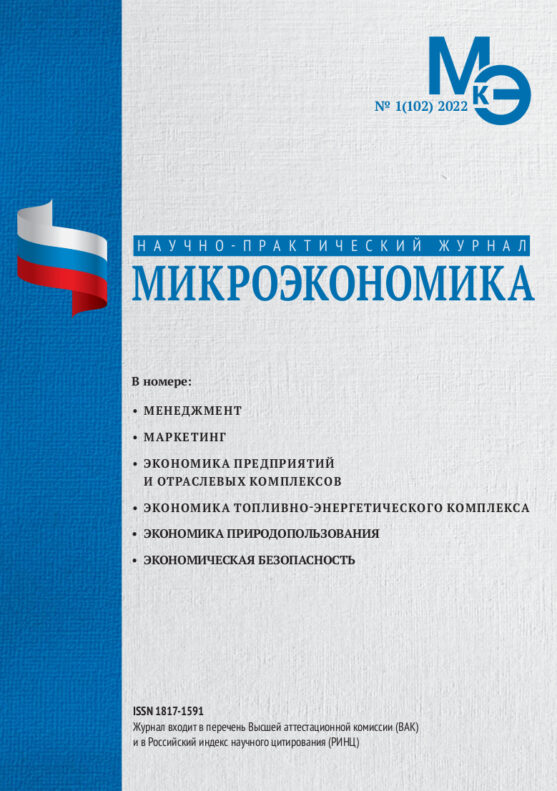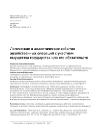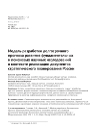DOI: 10.33917/mic-1.102.2022.5-21
The article deals with the regulatory and legal grounds and the subject of development of the forecast for the development of fundamental and exploratory scientific research. Provisions, factors and conditions regulating the formation of this forecast have been developed. Proposals for the development of information and expert support of the forecast are formulated.
References:
1. Scenario conditions for a long-term forecast of the socio-economic development of the Russian Federation until 2030 / Ministry of Economic Development of Russia. M., 2013. URL: https://institutiones.com/general/2373-klyuchevye-problemy-razrabotki-scenarnyx-uslovij.html
2. Mindeli L., Ostapyuk S., Chernykh S. Long-term forecasting of the development of fundamental science in Russia: methodological aspects // Society and Economics. 2017;10:5–22. (In Russ.).
3. Sidelnikov Yu.V., Minaev E.S. Technology of expert scenario forecasting. M.: MAI Publishing House, 2017.
4. Zubova L.G., Mindeli L.E., Motova M.A. et al. Methodological aspects of developing a long-term forecast of scientific and technological development / TsISN // Information Bulletin. 2004;6:31–74. (In Russ.).
5. Mindeli L.E., Ostapyuk S.F., Fetisov V.P. On the organization of long-term forecasting of fundamental and search scientific research // Economics and Mathematical Methods. 2019;55(1):56-67. (In Russ.).
6. Ostapyuk S.F. Conditions, stages, features and information support of the procedure for forecasting the development of fundamental and exploratory scientific research. Collection of articles on the results of the international scientific-practical conference «The state and trends in the development of science, technology and innovation». M.: IPRAN RAS, 2021. (In Russ.).
7. Makosko A.A., Abrosimov V.K. On forecasting the development of science as a task of weak artificial intelligence (conceptual approach) // Innovations. 2018; 9 (239):13–19. (In Russ.).
8. Pletnev K.I., Lazarenko N.E. Expertise in the scientific and technical sphere: methodology and organization. M.: Publishing House of the RAGS, 2003. (In Russ.).
9. Dushkin R.V. Why hybrid AI systems are the future // Economic strategies. 2018;156:84–93. (In Russ.).
10. Russell S., Norvig P. Artificial intelligence. Modern approach. 2nd ed. M.: Williams, 2006.
11. Marcus G. Deep Learning: A Critical Appraisal. New York University, 2017. Cornell University Library. URL: http://arxiv.org/1801.00631
12. Sokolov A.V. Foresight: a look into the future // Foresight. 2007;1(1):8–15. (In Russ.).
13. Novikov D.A., Chkhartishvili A.G. Active forecast. M.: IPU RAN, 2002. (In Russ.).
14. Belousov D.R., Frolov I.E. Long-term scientific and technological forecast: construction methodologies, contours of the technological future, development scenario // Foresight. 2008; 2(3):54-67. (In Russ.).
15. Website of the Council for Science under the Ministry of Education and Science of the Russian Federation. URL: http://sovet-po-nauke.ru/info/31012017-declaration_goszadanie




